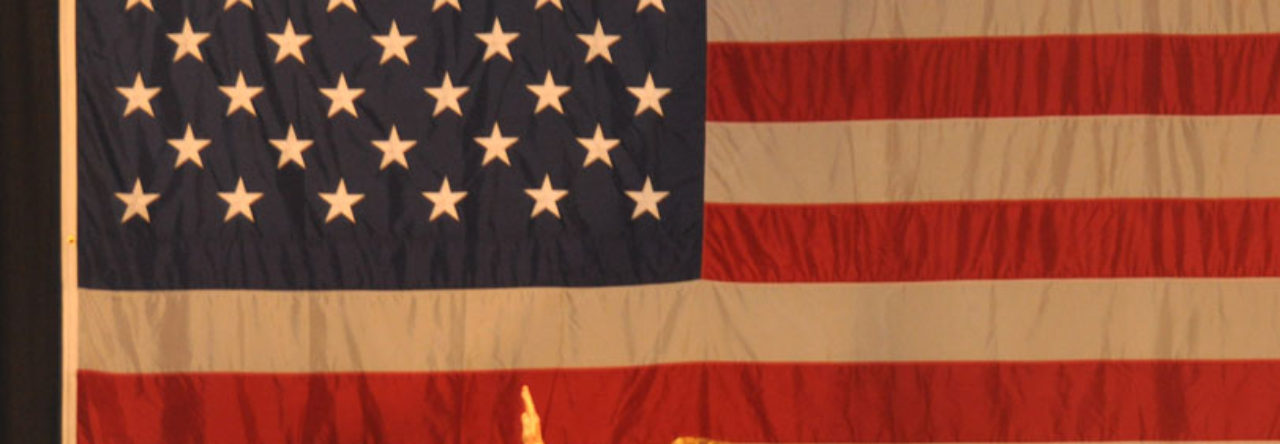
David Straithairn as Jan Karski in “Remember This” at the Nashville Film Festival.
Academy Award nominee David Straithairn portrays Polish Underground hero Jan Karski in this 95-minute documentary from the Nashville Jewish Film Festival. Straithorne will be better known to audiences as Tom Cruise’s convict older brother in “The Firm” or as the Oscar nominee for 2006’s “Good Night, and Good Luck.” More recently Straithairn was the male lead opposite Frances McDormand in the Oscar-winning Best Picture of the Year, 2021’s “Nomadland.”
In this Jeff Hutchens and Derek Goldman directed tour de force one-man show, Straithairn is onstage with just a table and a chair and must carry the entire story of the Polish war hero and the Nazi genocide without benefit of anything but some accompanying music. It’s a tall order with Straitharn, an actor in his 70s, portraying over 30 characters. It is the spare black-and-white no frills approach that kept the budget to $500,000.
The film is based on the play “Remember This: The Lesson of Jan Karski” by Clark Young and Derek Goldman. As a play, it ran with Straitharn “live” at the Chicago Shakespeare Theater on Navy Pier. The film was shot on a Brooklyn soundstage in July of 2020 at the height of the pandemic, and was completed in 2022. The play was originally prepared for the Laboratory for Global Performance and Politics at Georgetown University.
Karski was a Polish Catholic with a photographic memory; he was a true Polish patriot. Said Karski, “I am a 28-year-old machine. I am an insignificant little man.” He volunteered to become a sort of human tape recorder, documenting the genocide of the Jewish population of Poland and Germany. Captured at various points in his perilous journey, he narrowly escaped death at many points, attempted suicide at least once, and maintained that he was an ordinary man until the end of his life. We see a short snippet of the real Jan Karski, and he breaks down while trying to recount his adventures.
Throughout the film about World War II a viewer cannot stop thinking of the Ukraine/Russia conflict that is ongoing. Repeated throughout the film is the question, “What can we do?” The only suggestion during the film consisted of hunger strikes to publicize the atrocities.
The seeming indifference of the top leaders of the Allied powers in the UK and the US is underscored, with Supreme Court Chief Justice Felix Frankfurter flat-out telling Jan during their meeting that he does not believe him. Likewise, President Roosevelt was being urged by First Lady Eleanor Roosevelt to do more for the beleaguered Jewish population. She wanted him to allow more Holocaust victims to flee to the United States, but he followed the lead of Sir Anthony Eden of Great Britain, who said only, “The matter will take its proper course.”
Meanwhile, as Karski is told by his Superior in London, Szmul Zgielbojm (Polish government in exile), “Tell them in London and the U.S. that we are dying. Remember this.” Repeatedly Karski is told, “Perhaps this will shake the conscience of the world.” The message that echoes throughout: “Governments have no souls. They have only their interests. Individuals have souls.”‘
While Straithairn does what he can with the part, this is no “Schindler’s List.” The filmmakers did insert some sound effects and music that aids a bit, but it is truly up to Straithairn to convey the horror of a systematic attempt to wipe out three and one-half million Jewish residents of Poland and 6 million throughout Europe. The numbers of Jewish survivors in Poland are reduced to a few thousand survivors.
The letter to Roosevelt and Churchill that laid it out quite baldly said, “The surviving Jews of Poland beg you to find a way to save them. The greatest crime in human history. Force the Nazi murderers to stop the systematic extinction of our people.”Karski also had meetings with the top diplomats of the U.K. and the U.S., including Roosevelt I recently completed Robert Dallek’s biography of FDR entitled “Franklin Delano Roosevelt: A Political Life.” That comprehensive history of FDR’s years in office confirms the stories that Jan Karski tells about the slow pace of world leaders; those leaders would later claim that they had not been told of the full extent of the Holocaust.
One of the most telling historical stories depicted in the film is that of Szmul Mordeko Zgielbojm, the member of the Polish government-in-exile in London to whom Jan Karski reported. Zgielbojm was a Polish Socialist politician and Bund trans-union activist. He and Karski sought every avenue to publicize to the world the atrocities being committed in Poland, Germany and throughout Nazi-dominated Europe. On May 11th, 1943, after the brutal crushing of the Polish Warsaw Rebellion by units under the control of SS-Brigadefuhrer Jeugen Stroop, Zbielbojm committed suicide to protest the inaction of the western Allied powers.
The testimony is important for history, especially in an age when there are still Holocaust deniers. Straitharn does what he can with a bare bones production. Checking out some of the original recordings of Jan Karski (the Shoah Project) is a worthwhile pursuit. You can find some links at RememberThisKarskifilm.com.
